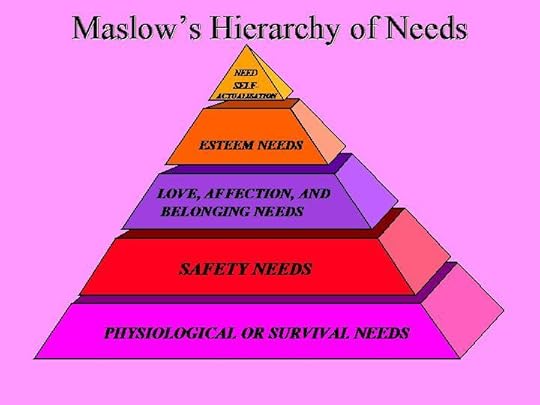Two Psychologists Talk BDSM – An Interview with Dr. Charley Ferrer – Part 1
This week I was lucky enough to be able to interview Dr. Charley Ferrer, a psychologist with a special interest and extensive experience in BDSM. She’s written books on the topic and even organizes a conference for authors of BDSM. Being a psychologist myself I was thrilled to have the chance to pick her brain and ask her opinions on some of the psychological aspects of BDSM.
Hi Normandie. Thank you for having me on your blog. It’s always a pleasure to speak with authors and their fans about the work I conduct to help provide education on sexuality and dominance and submission in particular.
Normandie: How did you develop an interest in the psychology of BDSM?
Dr. Charley: I didn’t initially go out seeking knowledge on BDSM. To me, these were desires I needed to keep secret so I wouldn’t be seen as the weird one or “troubled child” as I had been deemed as a teen when these desires first came to light to my family.
While working on my Masters in Counseling Psychology, one of the couples I was treating desired to experience spankings. I gave my permission. My classmates and professor—well, to say they disapproved would be putting it mildly. They felt I should be treating his pathology and referring her to a battered woman’s shelter, when all he wanted to do was spank her a little. At that moment, it became a “mission” for me to learn all I could about dominance and submission not only to help others, but to discover it for myself and make sense of all the feelings I’ve had since I was a child and others were experiencing.
Normandie: Considering Maslow’s Hierarchy of Needs where physiological needs like food, water, and shelter would account for our most basic needs, and love and belonging is in the middle, with self-actualization at the top, how would you adapt that to create a hierarchy of needs as they relate to BDSM?
Dr. Charley: I’m going to touch upon the most important aspects because this questions itself can be a 10-page response.
In BDSM the hierarchy of need is:
Trust: without it, there can be no true connection between a Master/Mistress and their submissive/slave. Though most see it as the submissive being the one that needs to trust the Dominant, I believe it’s even more imperative for the Dominant to be able to trust the submissive.
Acceptance: that who you are, whether Dominant or submissive, will be honored and respected; where your need to surrender or control is meet in various ways
Shelter: where your truths will be kept secret from prying eyes and you will not be unmasked to the world, your family, or friends–where your D/s needs are not acceptable
Love: where you’ll receive the aftercare you need
Sex/orgasm & subspace: are at the bottom of the list as only in romance novels is that the driving force of a relationship.
At the very top of all the hierarchy, what’s most important–as it is for every person in the lifestyle or not–is self-actualization. It is realizing that your soul requires more and you reach for it. Like gays and lesbians, many men and women who have D/s desires are in the closet—the leather closet; fearful of the prejudices and retribution which they’ll experience if others learned of their healthy normal desires and needs for a more primal passionate connection. It is this self-actualization which will help them grow, heal and come to terms with who they are.
You don’t suddenly wake up one morning and decide, “I’m kinky!” Yes, there are those that read a book, watch a movie, and want to “play” at kink and have fun. For others, it’s in their blood, in their psyche, it’s the core of who they are whether or not they allow themselves to embrace it.
Many individuals enter the D/s lifestyle thinking they will give up control to another and not worry about responsibilities and their lives will be “perfect”. (Although their version of what it means to truly surrender is false as it’s limited to ONLY those things they wish and the level they wish.) Others enter demanding surrender and wanting to exert control to appease their restlessness and lack of balance in other areas of their lives. These are not self-actualized individuals! However, the good and healthy aspect of this is that they are searching for their connection and exploring as they find their way.
As you make D/s connections with others—and more importantly yourself—you will find the core of who you are and at that point, all your hierarchical needs will fall into place and be there for YOU to accept, deny, embrace and give yourself over to, and come to terms with, in order for you to fully comprehend the depth of your soul and who you truly are as compared to who you want to be and what you wish to share with others. At that point, you’ve found nirvana—inner peace—and your true core self.
Note: the hierarchy structure may vary based on whether the person is a Dominant or submissive.
 Normandie: How does someone know when their sexual desires/interests are “normal” and when they need to ask for psychological help? Or is there ever a time when a person needs to seek help because they have “unusual” sexual appetites?
Normandie: How does someone know when their sexual desires/interests are “normal” and when they need to ask for psychological help? Or is there ever a time when a person needs to seek help because they have “unusual” sexual appetites?
Dr. Charley: Let me preface this with the fact that any actions that are non-consensual, forced or coerced are not healthy, are pathological, and even criminal. This is when you should seek treatment! Others, should seek guidance when their consensual desires or their thoughts negatively affect their ability to work or care on a relationship.
We are sensual sexual human beings no matter how much we try to deny it or control it through our religion, government, or societal dictates. In fact, it is this very control that pathologizes sexuality and creates mental health issues such as depression, self-hatred, criminal acts, and more.
Freud spoke about the Thanatos side of human nature, that primal beast within us “that we try so hard to bury in our subconscious and never let it see the light off day. It is this very burial—this denial—of who we are and our desires which causes pathology; that has us ostracizing others or committing hate crimes because someone expresses their love in a way our society, religion or government has taught us is not acceptable or “normal.” Dominance and submission is not a new desire nor a new phase in our global sexual history; it has been with us since the beginning of time. It’s why Vampire stories are so popular, and why the forbidden is so appealing.
It should also be noted that “normal” implies judgment. “Norm” means common or average”. And thus no BDSM is not the “norm”, however I would say, it’s practiced by everyone at some point in their life to varying degrees. But that’s another topic. Let’s move on to address your question on what is “normal” sexual desire.
Join us again next Thursday for the second part of our interview when I ask Dr. Charley is she believes “nature” or “nurture” plays a bigger role in a person developing an interest in BDSM. She will also offer some advice for those new to BDSM.
About Dr. Charley
 Dr. Charley Ferrer is a world-renowned Clinical Sexologist & Sex Therapist. She has been researching, exploring, and enjoying BDSM for over twenty years. She provides private D/s Mentorships for individuals and couples interested in discovering BDSM and claiming their full sensual identity and divinity. Dr. Charley is the host of BDSM Writers Con the only conference dedicated to authors and readers of dominance and submission. She hosts retreats throughout the US and overseas for women and couples. Visit her website at: www.DoctorCharley.com or www.BDSMWritersCon.com or contact her at DoctorCharley@DoctorCharley.com for further information on her retreats and Mentorship programs.
Dr. Charley Ferrer is a world-renowned Clinical Sexologist & Sex Therapist. She has been researching, exploring, and enjoying BDSM for over twenty years. She provides private D/s Mentorships for individuals and couples interested in discovering BDSM and claiming their full sensual identity and divinity. Dr. Charley is the host of BDSM Writers Con the only conference dedicated to authors and readers of dominance and submission. She hosts retreats throughout the US and overseas for women and couples. Visit her website at: www.DoctorCharley.com or www.BDSMWritersCon.com or contact her at DoctorCharley@DoctorCharley.com for further information on her retreats and Mentorship programs.
The post Two Psychologists Talk BDSM – An Interview with Dr. Charley Ferrer – Part 1 appeared first on Normandie Alleman. Normandie Alleman - The Racy Raconteur...
 newest »
newest »
 I loved reading this, thank you so much for sharing your expertise! I'm thoroughly excited to go and find some books by Dr. Ferrer for my own reading.
I loved reading this, thank you so much for sharing your expertise! I'm thoroughly excited to go and find some books by Dr. Ferrer for my own reading.





